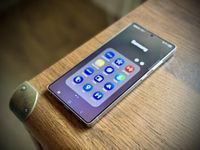In an era where digital privacy is becoming increasingly crucial, the messaging app Signal has emerged as a front-runner in securing user data. According to cybersecurity experts from Artezio, Signal topped the list of the most secure messaging platforms for 2025, surpassing competitors like Olvid, Threema, Element, and Session. Telegram, which previously held the fifth position, was notably excluded from the ranking due to significant changes in its privacy policy, as reported by the publication Коммерсант.
Signal's continued dominance in the field of secure messaging can be attributed to its open-source code and advanced data protection systems. Despite facing two major scandals involving data leaks, the app has managed to maintain its reputation. One scandal involved the accidental addition of a journalist to a chat with White House officials discussing military actions against Yemeni Houthis. The other incident pertained to the leak of classified military plans shared by the head of the Pentagon.
In contrast, Telegram's exclusion from the list raises concerns about its commitment to user privacy. The app has been criticized for lacking end-to-end encryption by default and for its cooperation with law enforcement agencies across various countries. This shift away from its previous standing underscores the growing scrutiny over digital privacy practices.
As the landscape of digital communication evolves, Samsung is also making strides in enhancing user privacy with the upcoming launch of One UI 8. Set to debut alongside the Galaxy S25 series, this new version will introduce significant improvements to the Secure Folder application, which is designed for safely storing apps, files, and photos on Samsung Galaxy devices.
According to leaker DevOfIpos, One UI 8 will feature a transition to a "Private Space" system, which promises stricter separation of data and applications. This means that applications stored within the Secure Folder will be completely isolated, not showing notifications or files to the rest of the system. Users can secure their private data with a password, which can be either a PIN code or biometric data, ensuring a higher level of confidentiality.
However, the new system may introduce an extra step for users when unlocking the Secure Folder. Despite this minor inconvenience, the enhanced security measures are seen as a necessary evolution in response to increasing concerns about data privacy.
News about One UI 8 is expected to surface in June 2025, with a beta version available for the Galaxy S25 series, followed by a full release anticipated in August or September 2025. This proactive approach by Samsung reflects a growing awareness of the importance of user privacy in today’s digital age.
Meanwhile, as individuals become more aware of the risks associated with smartphone usage, experts like Marina Holod, an information security specialist, are offering practical advice on how to safeguard personal data from surveillance. Holod emphasizes the importance of regularly reviewing the list of applications installed on devices, recommending that users remove unnecessary programs to minimize potential vulnerabilities.
Moreover, she stresses the importance of downloading applications exclusively from official sources like Google Play or the App Store. Malicious actors often create fake applications that mimic legitimate ones, concealing threats that can compromise user data. This is particularly pertinent for Android users, who are more susceptible to encountering harmful apps.
In addition to uninstalling unnecessary applications, Holod advises disabling push advertising, clearing search history, and turning off Google Analytics and location data collection through privacy settings. These steps not only enhance the overall performance of smartphones but also significantly reduce the risks associated with potential data leaks.
Holod's recommendations highlight that simple yet effective measures can empower users to protect their devices from surveillance while improving their performance. In a world where digital threats are ever-present, following these guidelines can ensure a higher level of data security and privacy.
As we navigate the complexities of digital communication and data privacy, the contrasting positions of Signal and Telegram illustrate the evolving landscape of user trust and security. While Signal solidifies its position as a leader in secure messaging, Samsung's innovations in user privacy and Holod's practical advice serve as reminders of the ongoing need for vigilance in protecting personal information.




